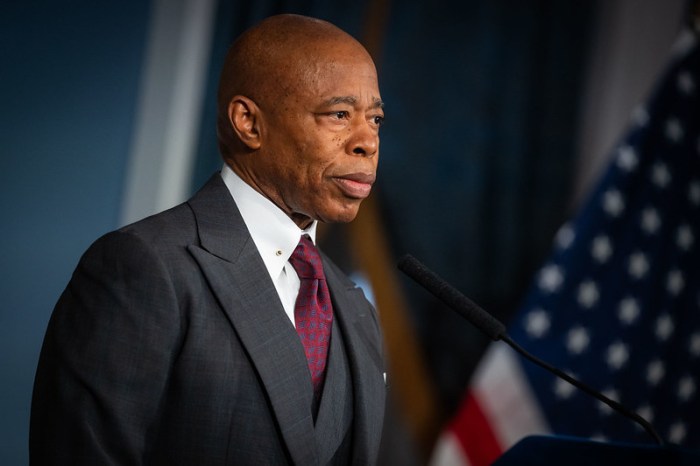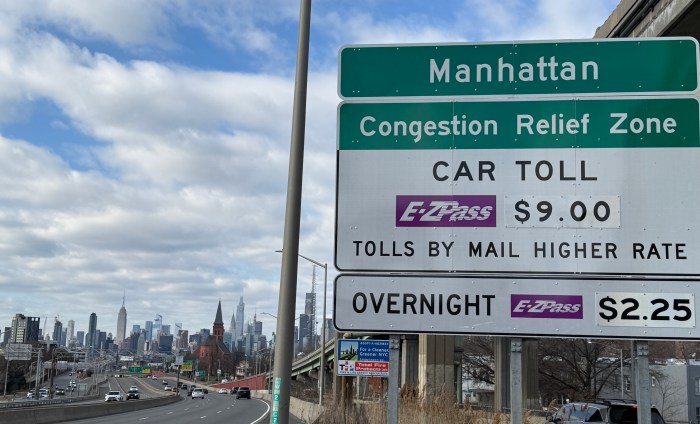BY TERESE LOEB KREUZER | One of the first acts of the newly sworn-in 113th Congress was to vote on a $9.7 billion bill to fund the National Flood Insurance Program. After having taken the oath of office the day before, the House of Representatives passed the bill on the morning of Jan. 4, 2013. The bill then went to the Senate, which approved it by unanimous consent. It will become law when President Barack Obama signs it.
The vote in the House was 354 in favor, 67, against. All of the votes against the bill came from Republicans, who opposed passage without equivalent cuts elsewhere in the federal budget.
The National Flood Insurance Program covers structural losses due to flooding such as that caused by Superstorm Sandy. Without the package that passed Congress on Jan. 4, the program would have run out of money by mid-January. According to the Federal Emergency Management Agency (FEMA), around 140,000 Sandy-related claims have been filed so far, with many applicants having received only partial payments.
Congress is scheduled to vote on a $51 billion Sandy aid package on Jan. 15.
New York State Assembly Speaker Sheldon Silver reacted to the news that the House had passed a flood insurance bill by saying that he found this “encouraging,” but he also said that it was “only a first step” and that much more needs to be done.
“Portions of my lower Manhattan district were deeply impacted and regions up and down the East Coast have been devastated,” he said. “People’s lives should not be held hostage to partisan politics.” He said that, “It is critical that Congress approve the full aid package so we can rebuild our communities and take steps to protect our vital infrastructure so that this does not happen again.”
On Jan. 3, 2013, the House of Representatives adjourned without passing the $60.4 billion aid package for Superstorm Sandy victims that had passed the Senate the previous week.
Now, a new bill will have to be introduced in both the Senate and the House of Representatives in the current session.
Congressman Jerrold Nadler (D-NY), who represents Brooklyn and Lower Manhattan communities hit hard by Sandy, was among those who condemned House leadership for failing to act on the bill that had already cleared the Senate.
“This is a betrayal of the millions of Americans who are struggling after Sandy and a trivialization of the loss of more than 100 American lives,” he said. “Not taking up the $60 billion Sandy funding bill will mean that many Americans could remain homeless, the rebuilding of homes and businesses across the Northeast will be delayed, and the coastal infrastructure of the region will remain damaged and vulnerable to the next storm. The MTA, U.S. Army Corps of Engineers and other agencies cannot execute major repairs to broken facilities without funding certainty.”
Nadler said he was “appalled — and mystified — by a total collapse of leadership on the part of Speaker Boehner.”
In an article published on Jan. 2, 2013, The New York Times said that the aid bill was a victim of “bad timing” — overshadowed by the frenzied negotiations to pass legislation to stave off spending cuts and tax increases that automatically took effect on Jan. 1, 2013.
The Times reported, “As word spread that the leadership would not consider any storm spending package this session, a procession of New York and New Jersey lawmakers went to the House floor Tuesday night to denounce the Republican leadership, in particular the speaker.”
“This is absolutely indefensible,” said Representative Peter T. King, a Republican from Long Island. “We have a moral obligation to hold this vote.”
New York Senator Charles E. Schumer (D) called the House’s decision “heartless.”
Speaker Silver described it as “morally reprehensible.” He noted that the aid package had strong bi-partisan support in the Senate. “Many areas up and down the east coast, including much of my lower Manhattan district, have been damaged,” he said. “And now, because of trivial political maneuvering, people and families will continue to suffer.”
The Sandy aid package on which the House of Representatives failed to vote would have covered money to help homeowners and small-business owners rebuild; to repair bridges, tunnels and transportation systems; to reimburse local governments for overtime costs of police, fire and other emergency services; and to replenish shorelines.


































